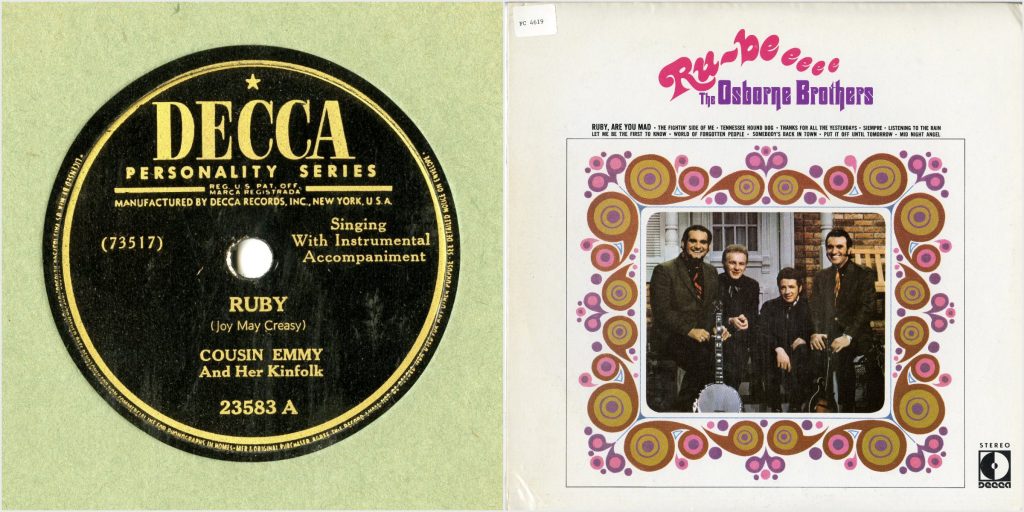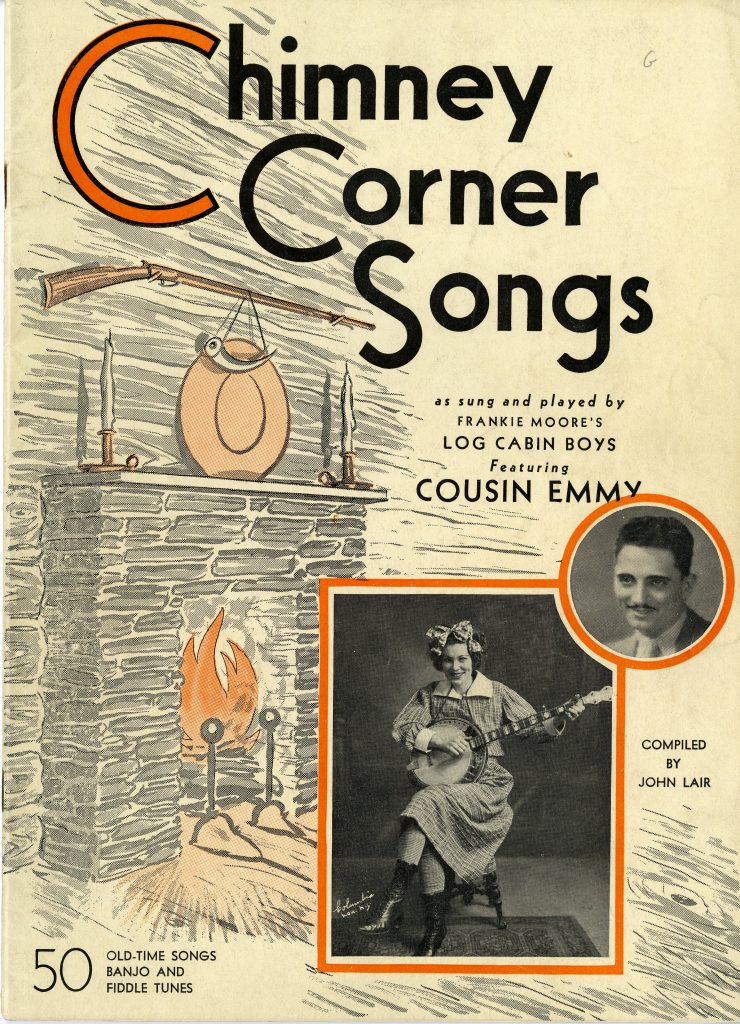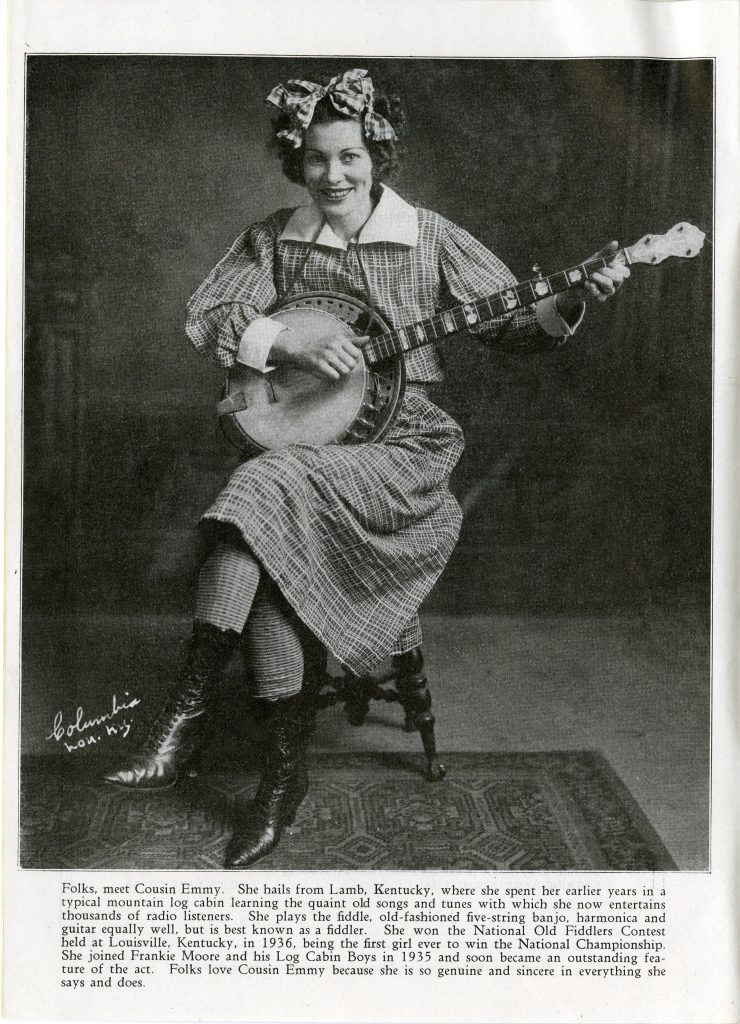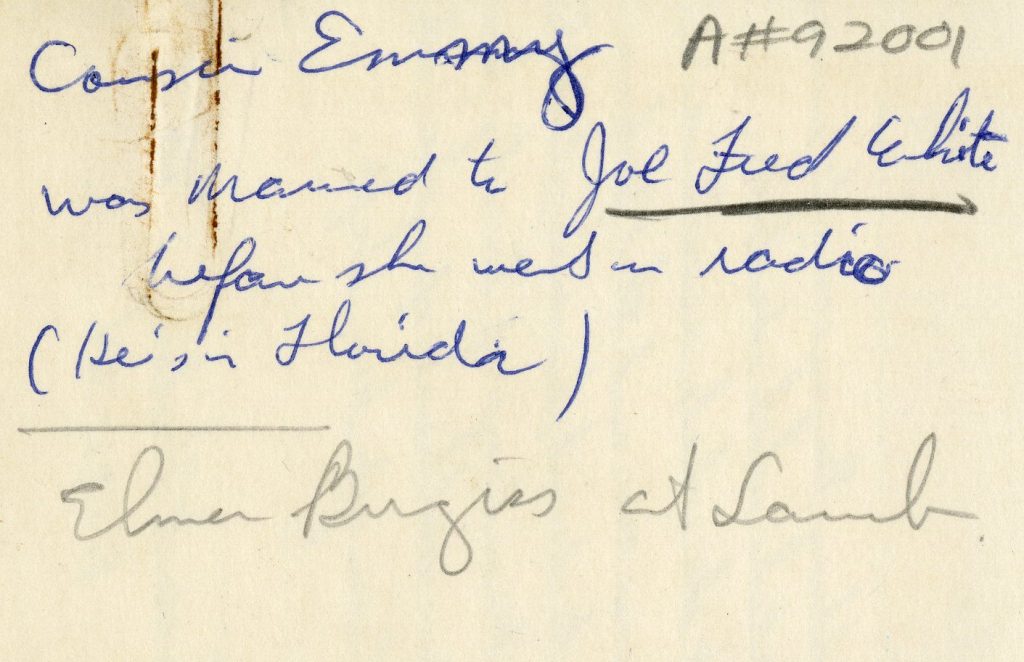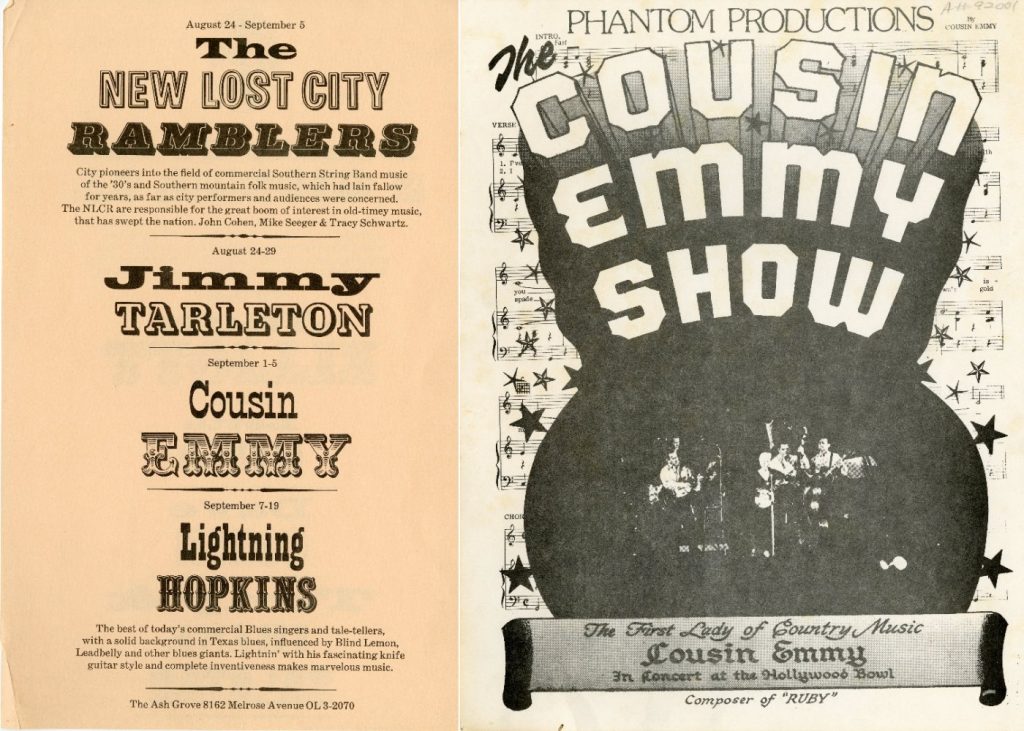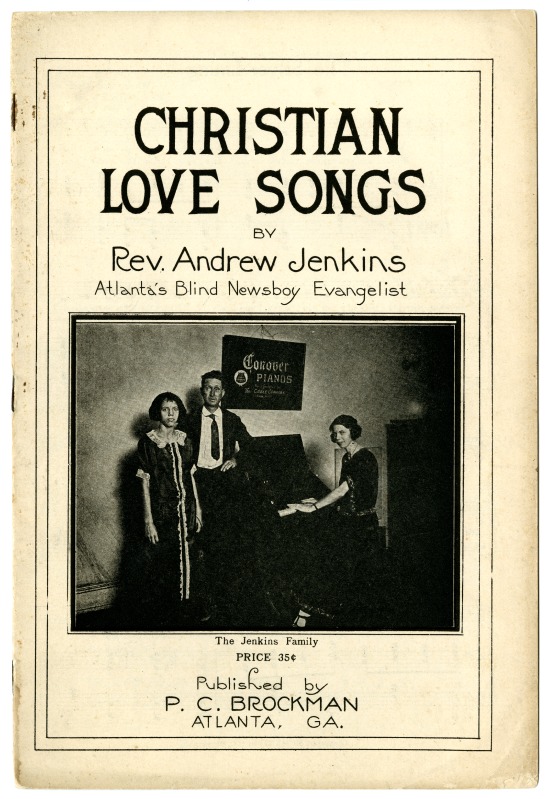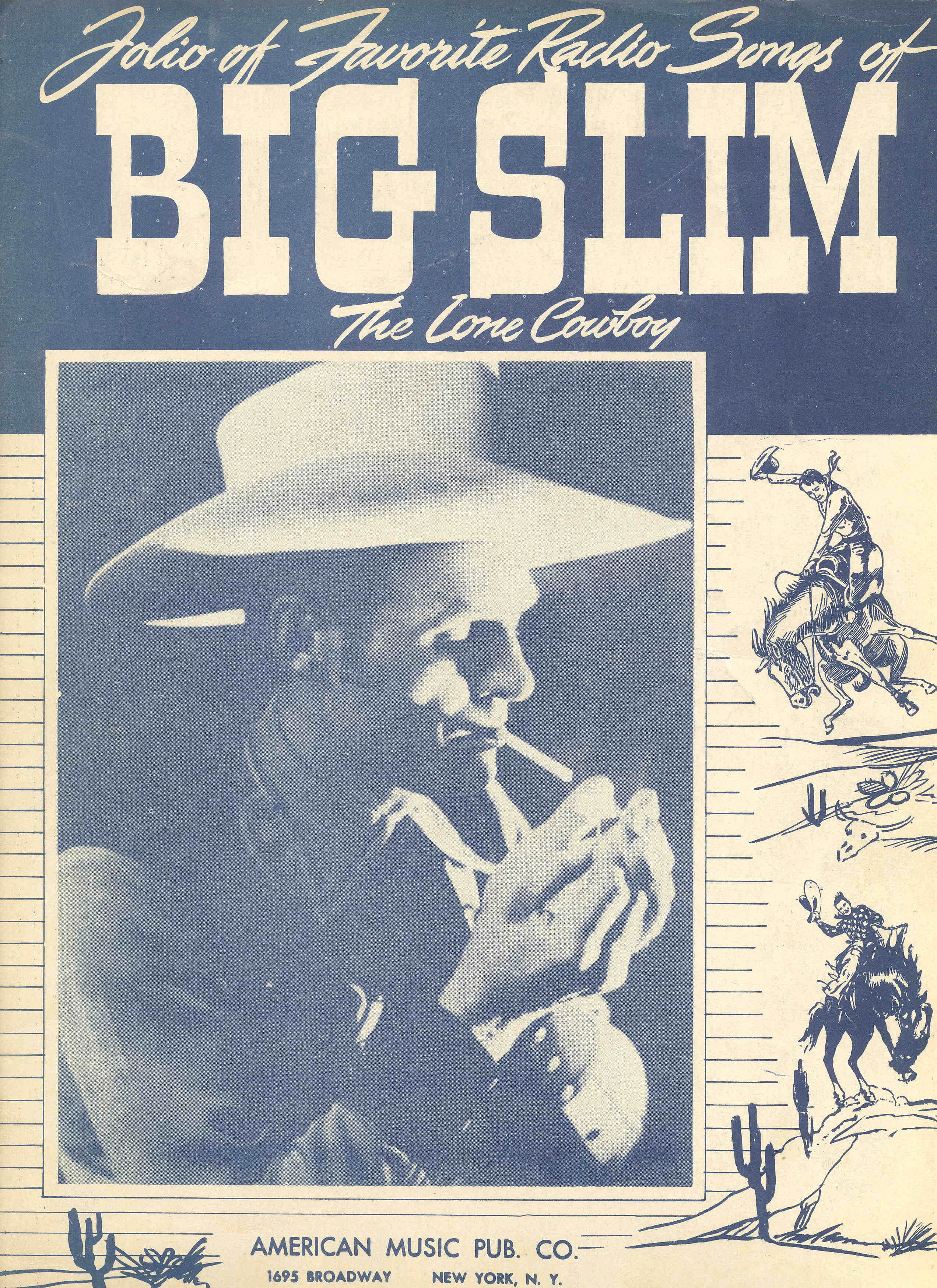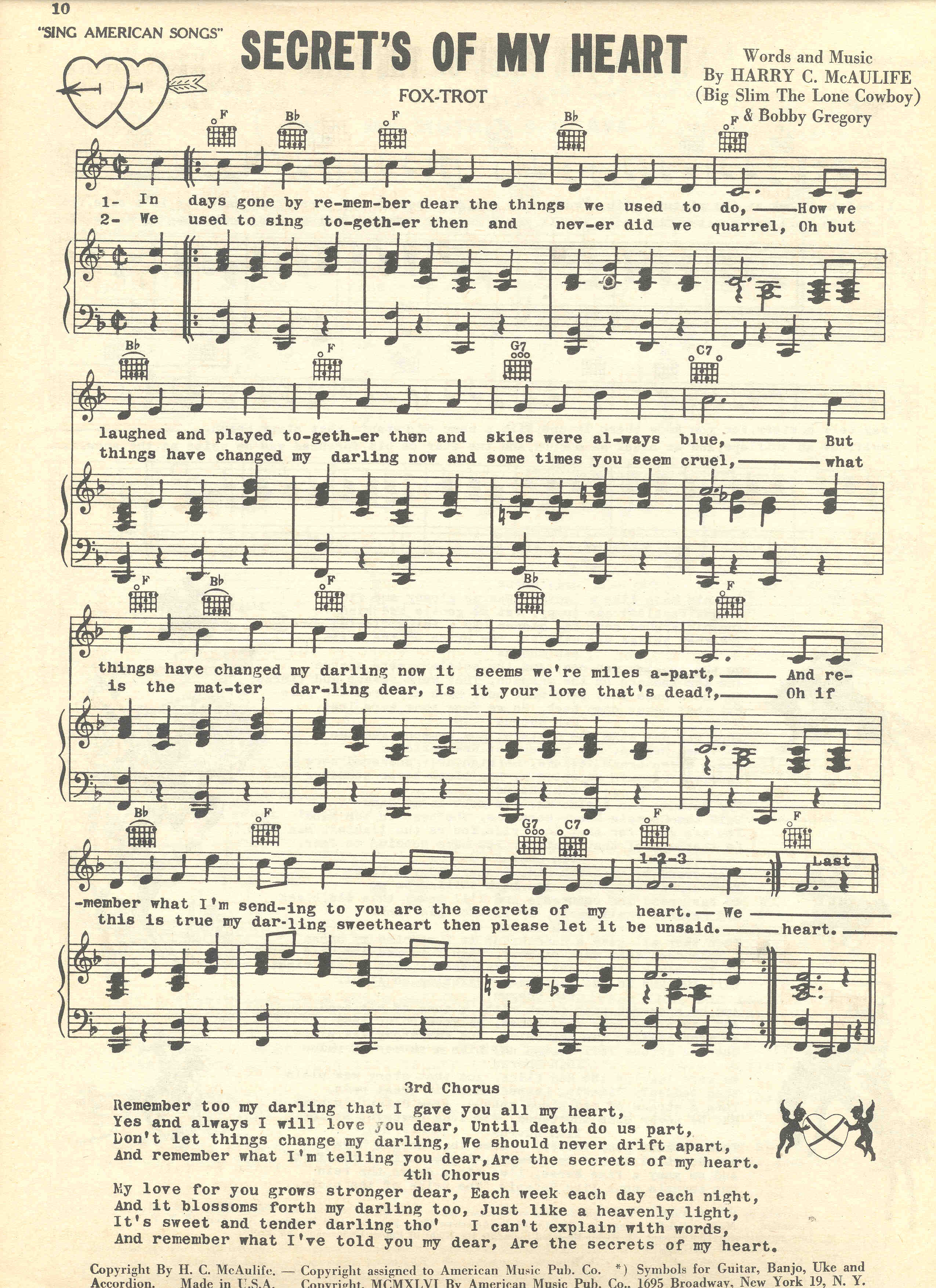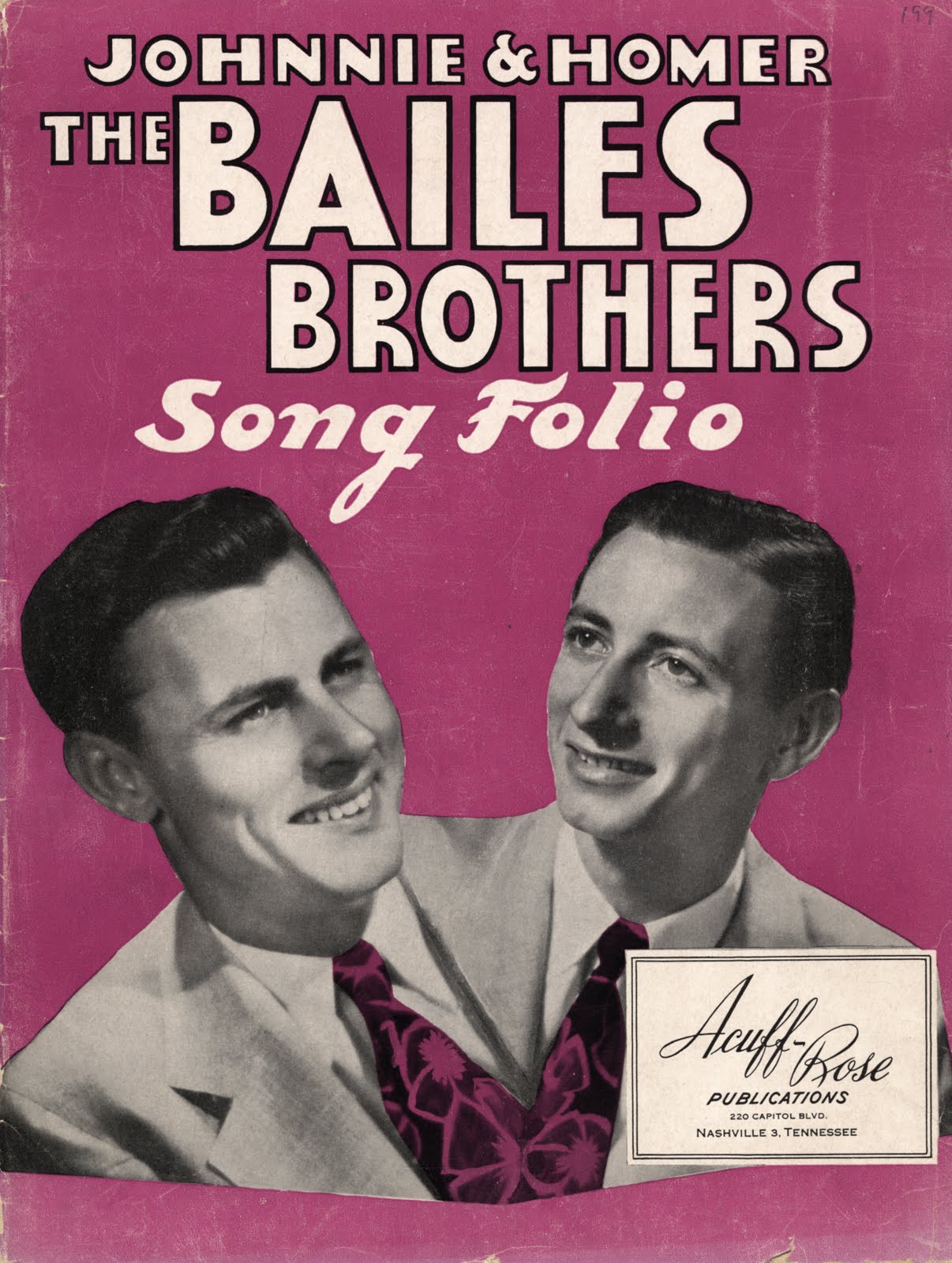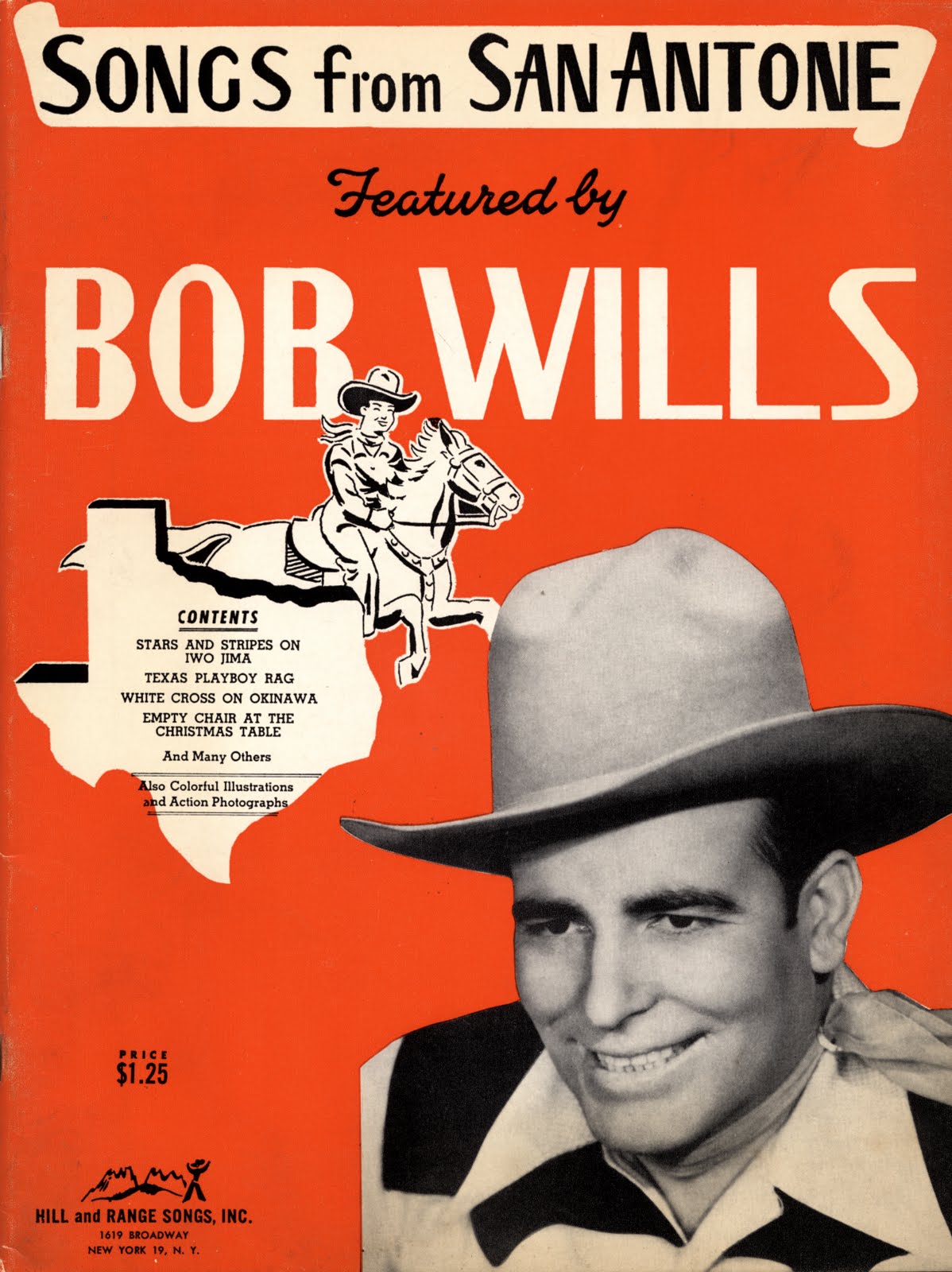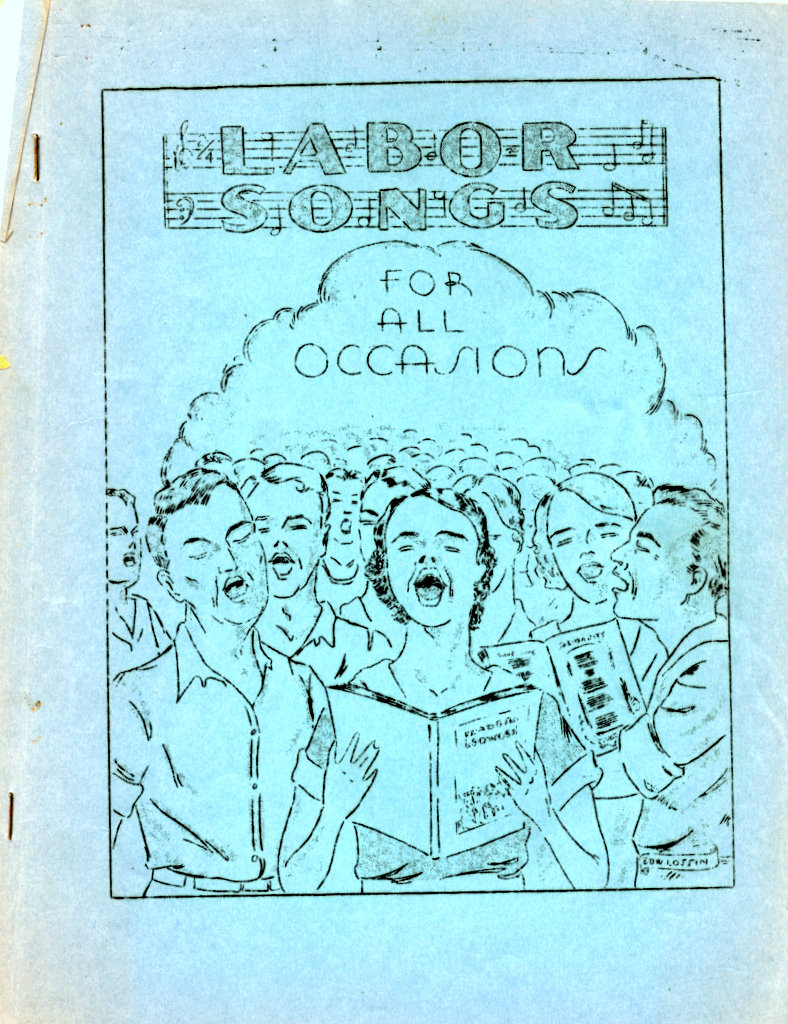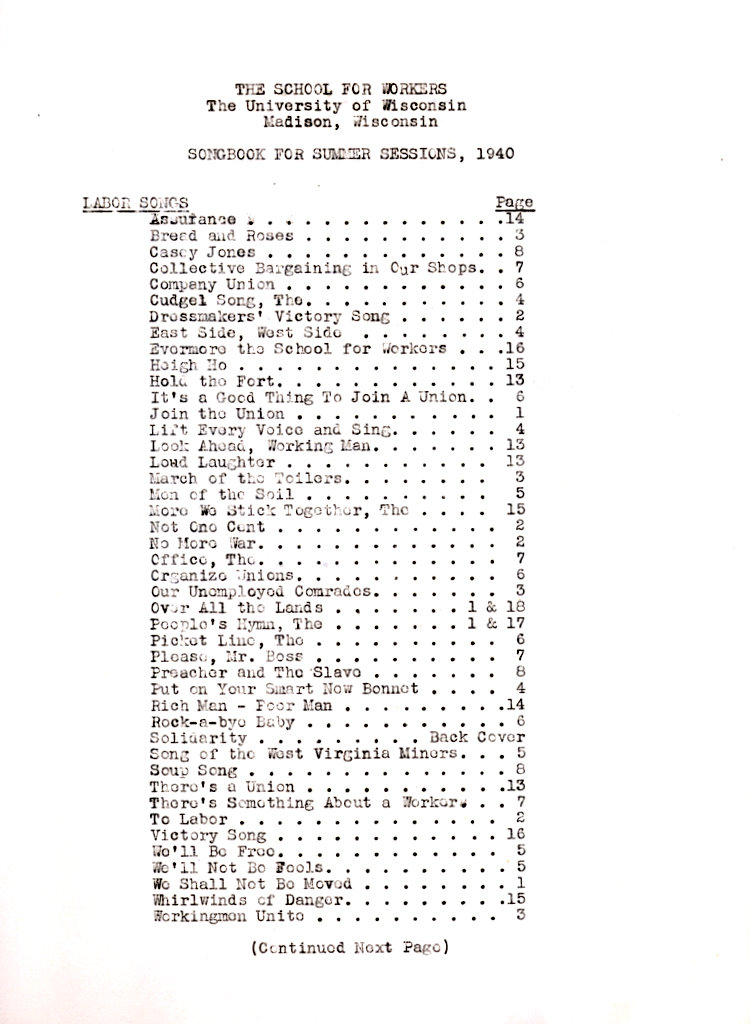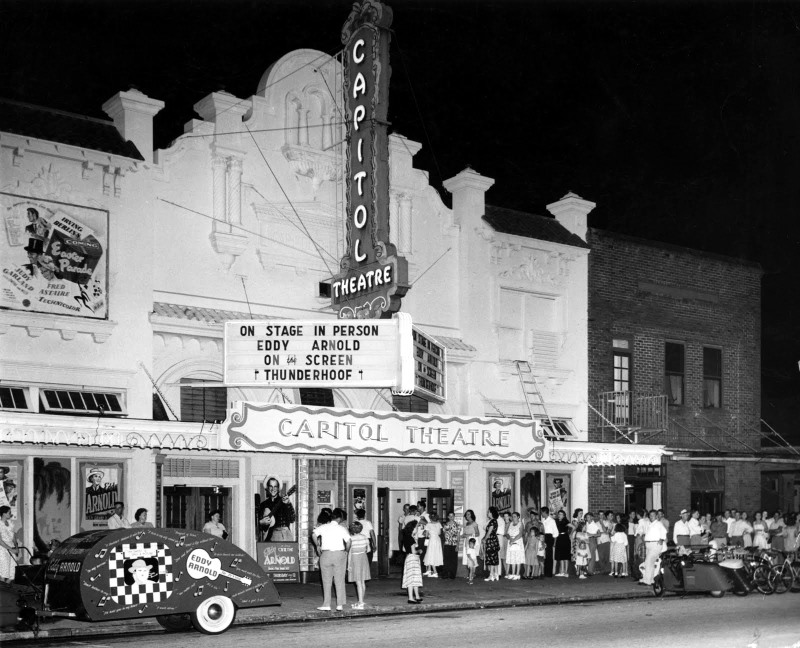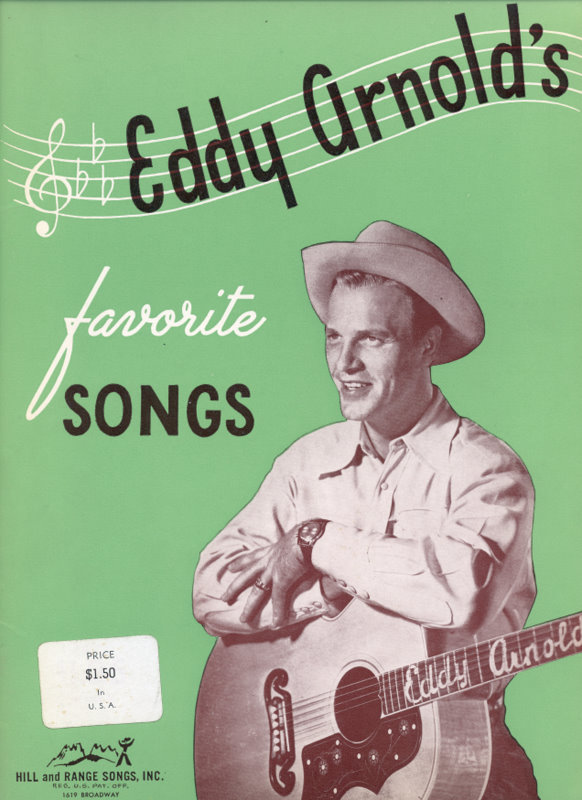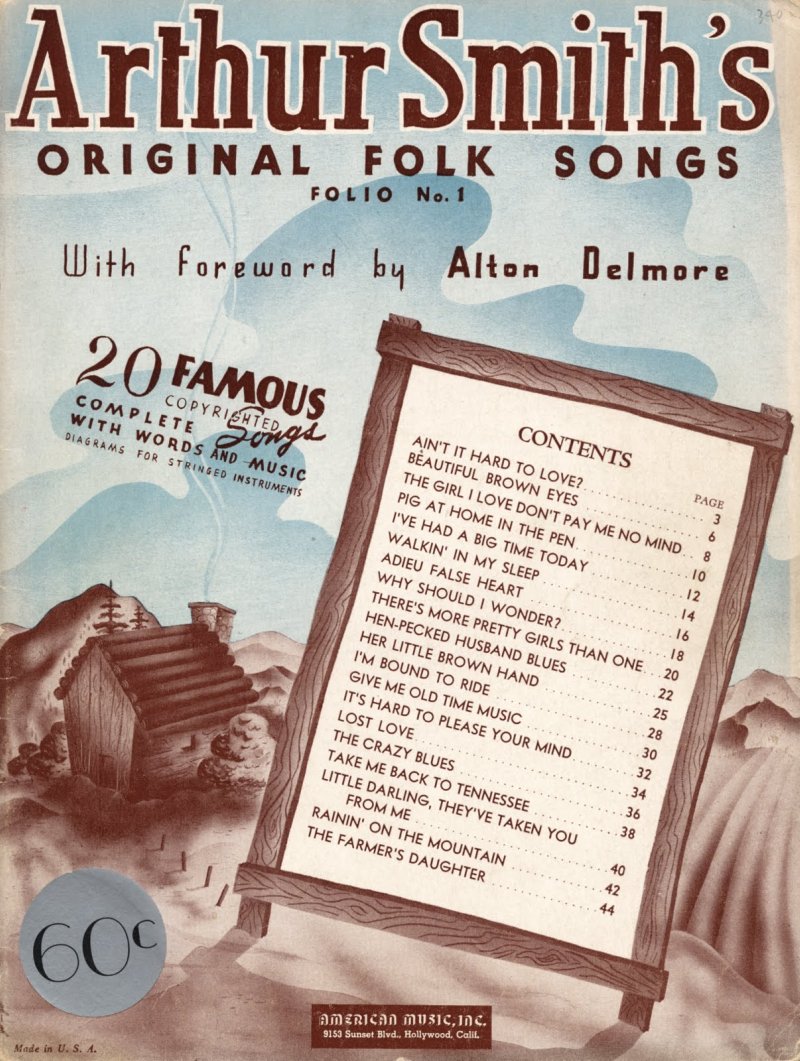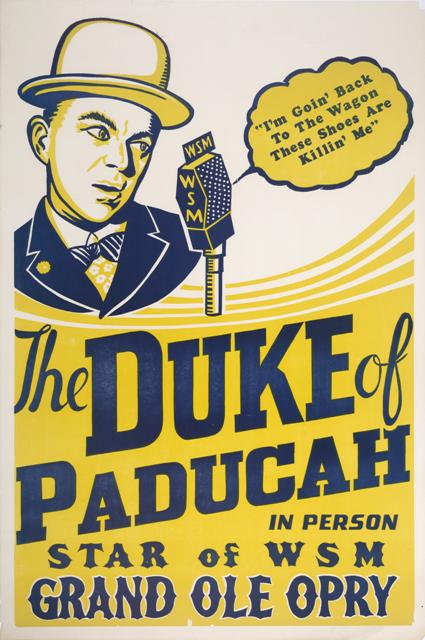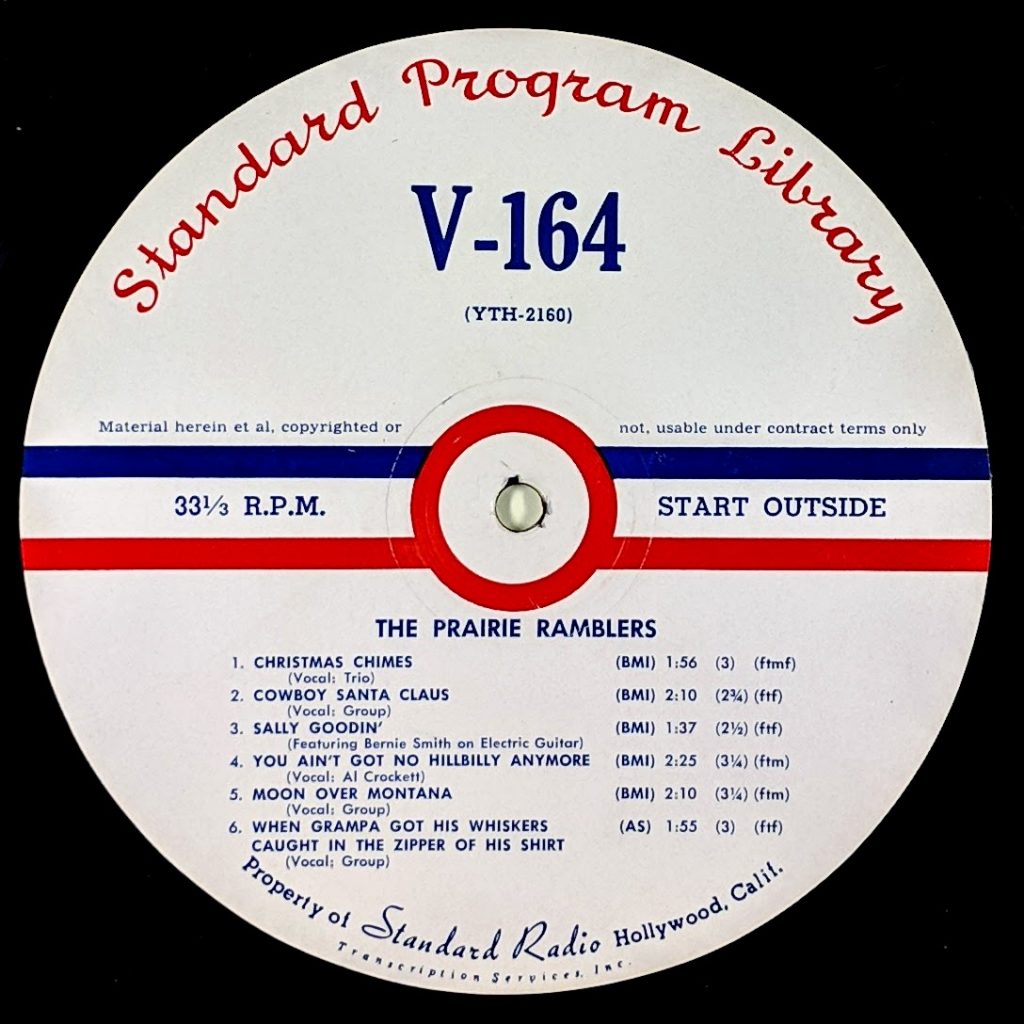
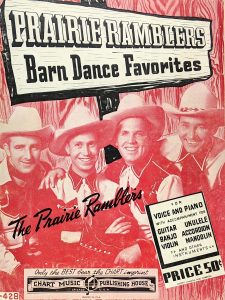 For your holiday listening pleasure, we pulled the Standard Program Library 16-inch transcription disc pictured above, call number TR1181 from the Southern Folklife Collection Transcription Discs (#30024), by the excellent Prairie Ramblers. The group coalesced in the 1930s appearing on numerous radio stations before settling down at WLS in Chicago. Featuring mandolinist Charles Chick Hurt, bassist “Happy” Jack Taylor, fiddler Tex Atchison, and Floyd “Salty” Holmes, a multi-instrumentalist and master of the harmonica, the group rose to fame after partnering up with a young Patsy Montana. Comfortable jumping from old-time stringband music, to country, to western swing, they went on to appear in numerous cowboy films with Gene Autry and other singing cowboys before splitting up for good in 1947 (well after Montana left to pursue her solo career). There is some excellent biographical information in the Prairie Ramblers Barn Dance Favorites, FL-506 in the Southern Folklife Collection Song Folios (30024). But back to the disc, here are a couple of holiday toe tappers to cut your cookies to:
For your holiday listening pleasure, we pulled the Standard Program Library 16-inch transcription disc pictured above, call number TR1181 from the Southern Folklife Collection Transcription Discs (#30024), by the excellent Prairie Ramblers. The group coalesced in the 1930s appearing on numerous radio stations before settling down at WLS in Chicago. Featuring mandolinist Charles Chick Hurt, bassist “Happy” Jack Taylor, fiddler Tex Atchison, and Floyd “Salty” Holmes, a multi-instrumentalist and master of the harmonica, the group rose to fame after partnering up with a young Patsy Montana. Comfortable jumping from old-time stringband music, to country, to western swing, they went on to appear in numerous cowboy films with Gene Autry and other singing cowboys before splitting up for good in 1947 (well after Montana left to pursue her solo career). There is some excellent biographical information in the Prairie Ramblers Barn Dance Favorites, FL-506 in the Southern Folklife Collection Song Folios (30024). But back to the disc, here are a couple of holiday toe tappers to cut your cookies to:
Listen to “Christmas Chimes”:
Lyrics: Merry merry Christmas chimes Merry merry Christmas chimes Ringing so sweet and so clear Merry merry Christmas chimes Merry merry Christmas chimes Telling of joy and good cheer When sleigh bells chime at Christmas time For sparkling snow their music sings They tell again that story old Of peace on earth, good will to men Merry merry Christmas chimes Merry merry Christmas chimes Ringing so sweet and so clear Merry merry Christmas chimes Merry merry Christmas chimes Telling of joy and good cheer The church bells ring their message plain Upon the clear and frosty air They voice the hope on Christmas day That love may conquer everywhere Merry merry Christmas chimes Merry merry Christmas chimes Ringing so sweet and so clear Merry merry Christmas chimes Merry merry Christmas chimes Telling of joy and good cheer
Listen to “Cowboy Santa Claus”:
Lyrics: We're going to have a sagebrush Santa He's coming in from Santa Fe He's a rootin' tootin' rounder He rides a bronc and not a sleigh He totes a .44 and a big white hat And he shoots from where he draws He's a singin', swingin' Rawhide slingin', cowboy Santa Claus Cowbells, cowbells, ringing on the range Ringing out a melody over the golden plains Cowbells, cowbells, ringing out because Everyone is welcoming our cowboy Santa Claus
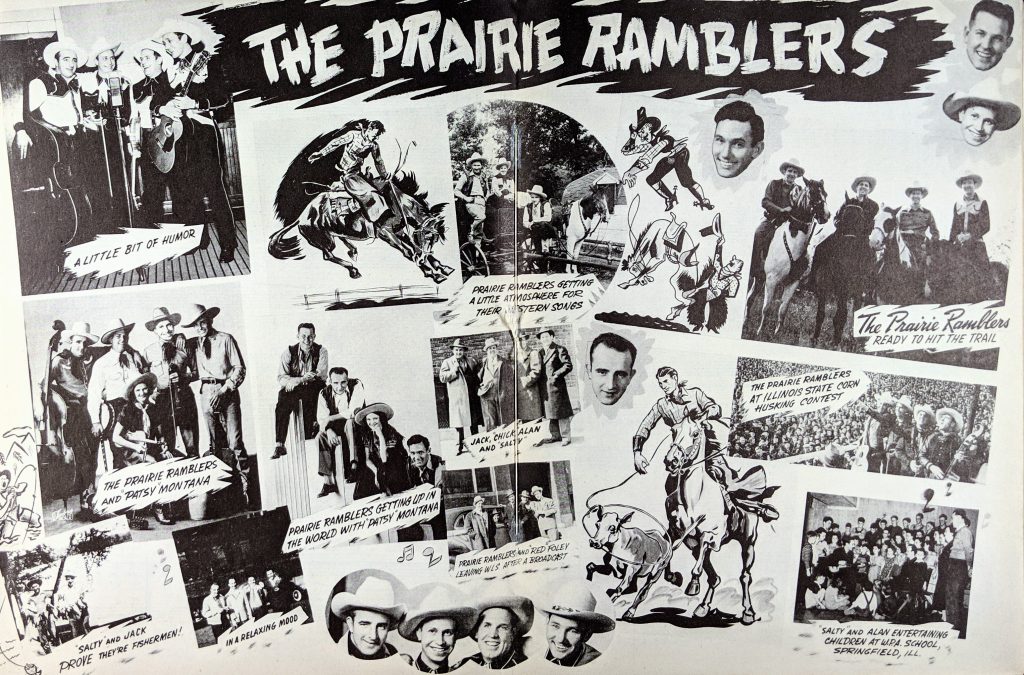
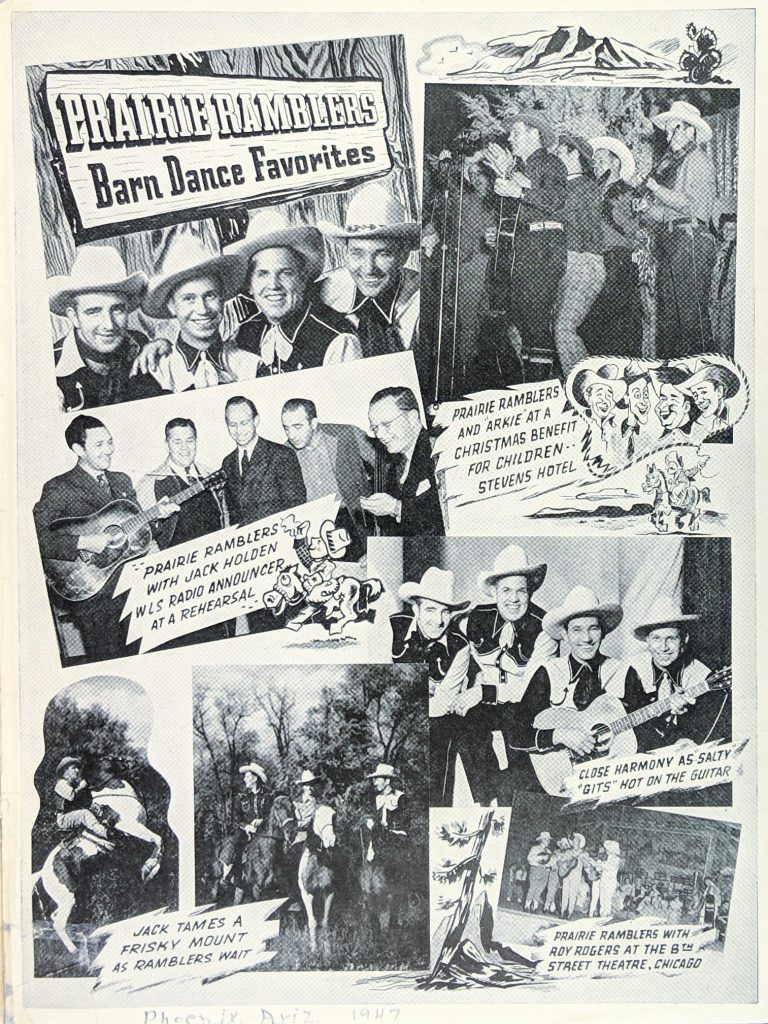

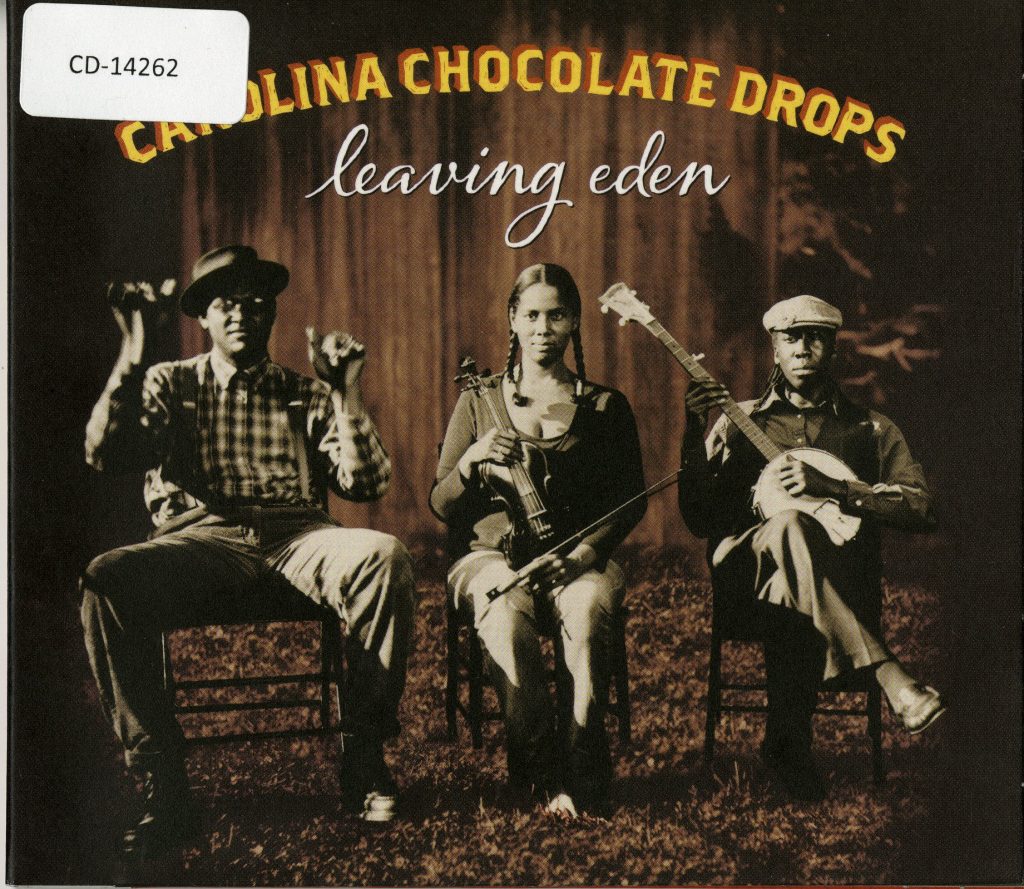 Last year, while writing a final research paper on the Carolina Chocolate Drops’ wonderful 2012 album,
Last year, while writing a final research paper on the Carolina Chocolate Drops’ wonderful 2012 album, 